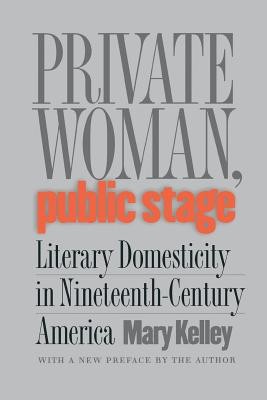
- We will send in 10–14 business days.
- Author: Mary Kelley
- Publisher: University of North Carolina Press
- ISBN-10: 0807854220
- ISBN-13: 9780807854228
- Format: 15.2 x 23.8 x 2.6 cm, minkšti viršeliai
- Language: English
- SAVE -10% with code: EXTRA
Reviews
Description
In the decades spanning the nineteenth century, thousands of women entered the literary marketplace. Twelve of the century's most successful women writers provide the focus for Mary Kelley's landmark study: Maria Cummins, Caroline Howard Gilman, Caroline Lee Hentz, Mary Jane Holmes, Maria McIntosh, Sara Parton, Catharine Maria Sedgwick, E.D.E.N. Southworth, Harriet Beecher Stowe, Mary Virginia Terhune, Susan Warner, and Augusta Evans Wilson. These women shared more than commercial success. Collectively they created fictions that Kelley terms "literary domesticity," books that both embraced and called into question the complicated expectations shaping the lives of so many nineteenth-century women. Matured in a culture of domesticity and dismissed by a male writing establishment, they struggled to reconcile public recognition with the traditional roles of wife and mother.
Drawing on the 200 volumes of published prose and on the letters, diaries, and journals of these writers, Kelley explores the tensions that accompanied their unprecedented literary success. In a new preface, she discusses the explosion in the scholarship on writing women since the original 1984 publication of Private Woman, Public Stage and reflects on the book's ongoing relevance.
EXTRA 10 % discount with code: EXTRA
The promotion ends in 22d.04:54:18
The discount code is valid when purchasing from 10 €. Discounts do not stack.
- Author: Mary Kelley
- Publisher: University of North Carolina Press
- ISBN-10: 0807854220
- ISBN-13: 9780807854228
- Format: 15.2 x 23.8 x 2.6 cm, minkšti viršeliai
- Language: English English
In the decades spanning the nineteenth century, thousands of women entered the literary marketplace. Twelve of the century's most successful women writers provide the focus for Mary Kelley's landmark study: Maria Cummins, Caroline Howard Gilman, Caroline Lee Hentz, Mary Jane Holmes, Maria McIntosh, Sara Parton, Catharine Maria Sedgwick, E.D.E.N. Southworth, Harriet Beecher Stowe, Mary Virginia Terhune, Susan Warner, and Augusta Evans Wilson. These women shared more than commercial success. Collectively they created fictions that Kelley terms "literary domesticity," books that both embraced and called into question the complicated expectations shaping the lives of so many nineteenth-century women. Matured in a culture of domesticity and dismissed by a male writing establishment, they struggled to reconcile public recognition with the traditional roles of wife and mother.
Drawing on the 200 volumes of published prose and on the letters, diaries, and journals of these writers, Kelley explores the tensions that accompanied their unprecedented literary success. In a new preface, she discusses the explosion in the scholarship on writing women since the original 1984 publication of Private Woman, Public Stage and reflects on the book's ongoing relevance.


Reviews